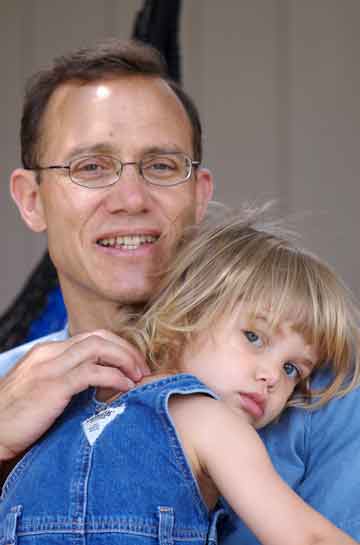
As a child, I loved flying kites.
The first movie I ever saw was Mary Poppins. Its upbeat tune, "Let's Go Fly a Kite," is one I still whistle today. Dancing on breezes over houses and trees, you begin to feel the impossible possible.
But first you’ve got to understand how to hold onto that spool of string, and that’s where things began to get tricky for my daughter, Abigail, and me a couple of weeks ago.
The wind was cantankerous, unpredictable, uncooperative. During those few times when it was gentle and supportive, buffeting her kite, Abigail’s passion soared; when the wind drove the kite to the earth, her spirits sank. She had neither the skill nor the experience to let the string out. Limited to a short string, her kite was not able to endure the vicissitudes of the wind.
But, with a little encouragement from me, she tried again—this time, though, I put my hand over her hand on the spool, and showed her how to let it out. Little by little, the kite caught the breeze, and before long it was a couple of hundred feet in the air. Even when a gust of wind drove the kite precipitously toward the earth, Abigail and her kite seemed to sense what they needed to do, the kite righted itself and climbed steadily toward the heavens.
Needing a helper, a friend or a mentor as we journey through life seems self-evident. It is astonishing to me how often we forget that truth!…One never accomplishes anything by oneself. No matter what you do, what goal you strive for, or what accolade you receive, the plain truth is that ‘your’ achievement, like ‘my’ achievement, is a reflection of the cumulative effort and input of tens, hundreds, even thousands of persons. I think it is arrogant to claim otherwise. Sometimes I think it is best to purge the word ‘I’ from your vocabulary. When you have the choice, choose ‘we.’
But ‘we’ means that ‘we’ need to be adept at developing personal or professional relationships with other individuals—and that’s tricky business. It is not necessarily intuitive, and it requires trust.
Trust is the cornerstone of lasting relationships; and trust in relationships, either personal or professional, takes time to develop and mature.
An African proverb says, “If you want to walk fast, walk alone. But if you want to walk far, walk with a friend.”
Dr. Einterz is professor of clinical medicine and associate dean of international programs at the Indiana University School of Medicine, where he is co-founder of the IU-Moi University (Kenya) exchange program that led to the creation of AMPATH (the Academic Model for the Prevention and Treatment of HIV/AIDS), Kenya’s most comprehensive initiative to combat HIV. “Of Kites, Mentors, and Trust” is excerpted from his talk for the “Last Lecture” series at Indiana University-Purdue University at Indianapolis.
Photo by Chris Minnick
 As a child, I loved flying kites.
As a child, I loved flying kites.